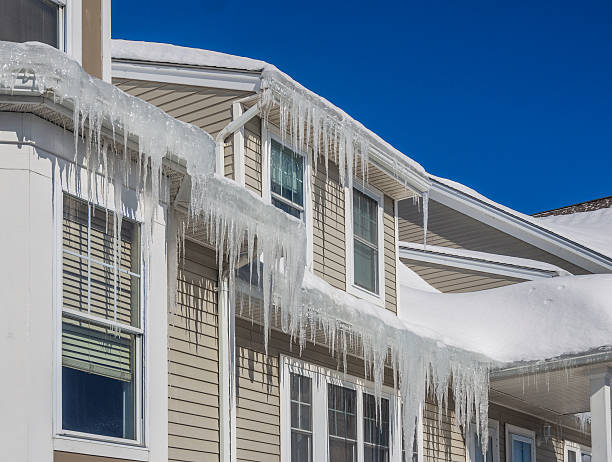Don’t let the mild winter we are having in Pennsylvania and New Jersey or Punxsutawney Phil fool you. There are still many days left until winter is officially over and snow and ice damage claims are on the rise.
Snow and ice damage claims come in all shapes and sizes, and many homeowners don’t even know or fully understand what’s in their current policy besides a lot of industry jargon. They often assume that damage caused by winter storms will be included in their policy coverage. However, just because such coverage might be in the policy, there are offsets insurers use to reduce final settlements.
Reports of roofs collapsing under the weight of ice and snow are reported often. Homeowners are complaining about roof leaks caused by ice dams as snow freezes and water backs up under the shingles. If you’ve experienced damage to your Pennsylvania or New Jersey property because of the winter weather, chances are you’ll be filing an insurance claim shortly. But handling the claim yourself and getting a fair settlement can be extremely confusing, tedious and intimidating.
For instance, direct damage caused by sudden accidents, like a falling tree, burst pipes, or heavy winds are normally covered under your homeowner’s insurance policy. But those claim amounts can be reduced due to ongoing property neglect, deterioration, and other insufficient property maintenance, while the damage may be a valid claim, the adjuster will certainly take those factors into account. Such mitigation can even negate a claim, as the insurer will argue if the home had been properly prepared and/or maintained, the damage would not be as severe or even had occurred at all.
Homeowners Prep for your Snow and Ice Damage Claim
Before you rush into filing an insurance claim for snow or ice damage, it’s time to prepare. You’ll want to do everything by the book so not to have your insurance claim rejected.
The first course of action is to stop the damage from getting any worse and protect your furniture and other personal belongings. You need to take the initiative and have the fallen tree removed, collapsed roof, ice dams or whatever is the cause of the problem. But make sure to preserve as much as possible.
Next, hire an experienced and licensed public adjuster. Insurance policies are filled with industry jargon, so it’s best to have a certified public adjuster go through your homeowner’s policy and translate it for you. The adjuster will also help you determine how to structure your claim for maximum effectiveness.
Due Diligence for Maximum Settlement
You must take the steps to document all the damage and preserve every piece of evidence for maximum settlement. Photos are a must, as will preserving all damaged property. Do not clean up and dispose of what would otherwise be valid evidence.
Ensure your snow and ice damage claim is detailed, think it out. If you have snow and ice damage, most likely you will have snow and ice melting into the interior of your home, which will bring water damage. What’s likely to follow is mold, and you may need to have a mold remediation company check the mold type and progress and this should also be part of your claim.
The Settlement. Don’t accept the first settlement offer. When you report a loss, an adjuster will come out to evaluate your property. Insurance adjusters base their costs on replacement, and average material costs. If you do get a check, don’t deposit it until you’ve reviewed and agree with it 100%.
New Snow & Ice Damage Claim ? Denied Claim ? Contact Our Experts Now at 1-800-204-2463 American Claims Ensurance – We handle the following claims:
- Fire and Smoke Damage
- Water Damage
- Flood Damage
- Catastrophic Damage
- Theft and Vandalism Damage
- Burst Pipes
- Frozen Pipes
- All Plumbing Leaks
- Toilet Overflow
- Snow and Ice Damage
- Roof Leaks
- Blown Off Shingles & Siding
- Building Collapse

